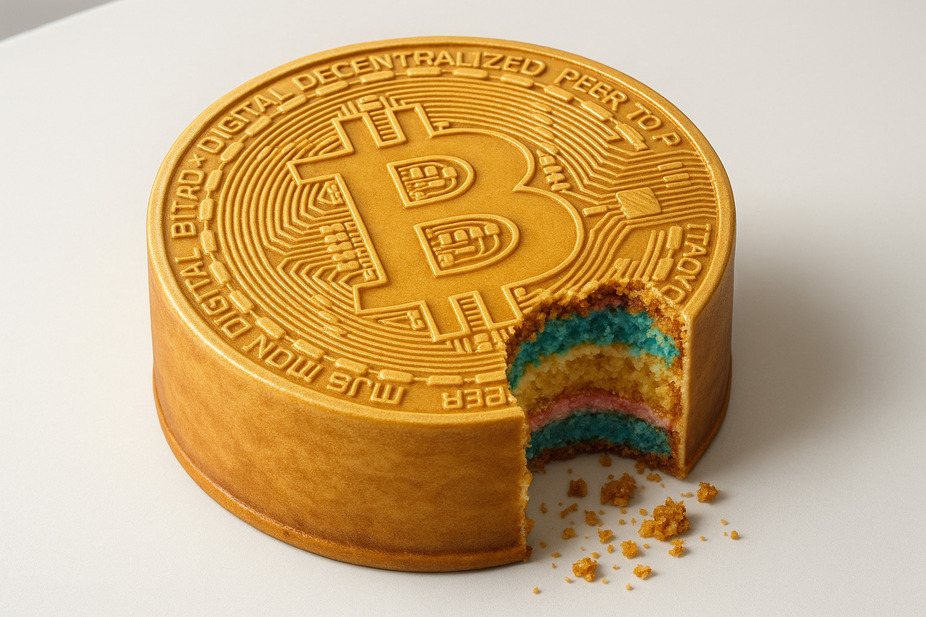Crypto security for everyone: a guide to protecting your digital assets

One of the most appealing things about cryptocurrency, as opposed to traditional currencies like the U.S. dollar, is that you have total control over your digital assets.
Instead of using banks or other financial companies to manage your money, cryptocurrency lets you be your own bank. You are the only person who can access the digital wallet where your crypto is stored. This means that no one can censor, seize or freeze your funds, as long as you take the right precautions.
But there is a catch: You are also completely responsible for keeping your crypto safe, which can be difficult. Stories of theft and accidental loss are in the news a lot, which can make you feel overwhelmed.
Buying crypto is becoming easier, but keeping it safe can feel difficult, especially if you’re not good with technology.
So, how do you protect your digital treasure? Let’s look at each of these.
How to store crypto safely
Since all cryptocurrency tokens are digital assets, there are no physical coins to store. Instead, access to your crypto is secured in digital wallets, which are typically software applications or physical devices (like USB drives) that safeguard information about your funds.
How crypto wallets work
To understand how to keep your crypto safe, let’s look at how wallets work:
When a crypto wallet is created, two linked digital codes are generated:
- A public key
- A private key
These keys prove ownership of the assets when sending them to others.
The public key is used to generate a public wallet address, a fixed-length code that anyone can see and use to send you crypto, much like a home address.
The private key proves ownership and should never be shared. Think of the public key as your home address and the private key as your front door key. If someone else has your front door key, they can enter your home and steal your belongings. If a crypto wallet owner loses or forgets their private key, they can permanently lose access to their funds.
If the device where your crypto wallet is downloaded is lost, stolen, or damaged, a backup code called a “seed phrase” can be used to recover it on a new device. You must generate the seed phrase before anything happens to your device and store it offline in a safe place.
Like a private key, if someone gets hold of your seed phrase, they can duplicate your wallet onto another device and steal your funds.
Crypto security best practices
To protect your assets and avoid crypto scams, familiarize yourself with these steps:
- Never keep digital copies of private keys/seed phrases: Manually write down codes on paper or use metal plate products designed for recording crypto keys. Store these in a fireproof and waterproof safe. Taking screenshots, emailing, or texting this information are common ways cybercriminals access sensitive data.
- Minimize assets held on crypto and DeFi platforms: If you actively trade or use DeFi, you may need to deposit assets on platforms. Assets held on centralized crypto platforms sit in online wallets controlled by the platform, making them a target for hackers. Billions have been stolen from crypto trading platforms due to poor security. While reputable platforms take steps to keep funds safe, never hold all your funds on any single platform.
- With DeFi protocols, your assets are held in smart contracts, which can contain exploitable loopholes or fraudulent backdoors. Only hold a percentage of your digital wealth in any given DeFi protocol to mitigate risk.
- Enable two-factor authentication (2FA): Add an extra layer of security to your email and crypto accounts with 2FA, using apps like Google Authenticator. These apps provide passcodes that renew every 10 seconds, making it harder for hackers to access your accounts. Generate backup codes for these apps to recover your master accounts.
- Avoid disclosing crypto holdings: Whether online or in public, never disclose your crypto holdings. Telling people you own crypto can make you a target for criminals.
- Storing private keys in reputable hardware wallets can help protect cryptocurrency from online threats and hacking attempts.
- Regularly updating devices and enabling two-factor authentication is a common way crypto traders enhance the security of their crypto holdings.
- Keeping seed phrases and private keys secure is essential for accessing and recovering cryptocurrency safely.
Types of crypto wallets
Crypto wallets fall into two categories:
- Hot wallets: These wallets are always connected to the internet, like browser-based wallets (like MetaMask) or software wallets (like Exodus). Hot wallets let you check your balance and send/receive transactions quickly. But because they’re always online, they’re more at risk of having their computer hacked. Private keys are often stored online or on the device where the software is installed. Phishing emails and scams can steal your private keys or infect your devices with malware.
- Cold wallets: These are physical devices that connect to the internet only when they are plugged into a computer. Cold wallets are disconnected from the internet most of the time, so criminals need to physically take the device to access the funds. They are more secure, but it takes longer to transfer money. The best manufacturers are Ledger and Trezor. It’s best to buy cold wallets straight from the people who make them. This way you can be sure that the devices haven’t been tampered with.
Cryptocurrency security threats
Buying crypto and storing it in a wallet doesn’t guarantee complete safety. The lucrative, unregulated nature of cryptocurrencies attracts hackers and scammers.
The best way to avoid these threats is to educate yourself about common scams:
- Crypto giveaways: These scams on Twitter and YouTube use fake profiles with images of famous people, promising to double any crypto sent to a specific wallet. In reality, funds are stolen and nothing is sent back.
- Phishing emails: Data leaks from crypto companies can result in users receiving fake emails from official-looking sources asking for sensitive information. These emails may contain malicious links that infect devices with malware targeting crypto wallets.
- Ponzi schemes: These plans offer very high returns with little effort. Some of these are easy to spot, while others create professional-looking platforms to make them look legitimate. Before you invest, check the team behind the platform, the social media channels they use, and how exactly they make money. Make sure you can withdraw money.
- Bitconnect, a former top ten cryptocurrency, was a crypto-based Ponzi scheme that stole over $2 billion from investors between 2016 and 2018.
Q&A
Q: What’s the most important thing I can do to protect my crypto?
A: Protect your private key and seed phrase at all costs! Never share them with anyone, and store them offline in a secure location.
Q: Should I keep all my crypto on an exchange?
A: No. Exchanges are convenient, but they’re also targets for hackers. It’s best to keep most of your crypto in a cold wallet.
Q: What’s a hardware wallet?
A: A hardware wallet is a physical device that stores your private keys offline, making it much more secure than a software wallet.
Q: How do I spot a crypto scam?
A: Be suspicious of anything that sounds too good to be true. Do your research before investing in any crypto project.
Conclusion
Keeping your crypto safe requires vigilance and a basic understanding of security principles. It might seem overwhelming, but by following these tips, you can significantly reduce your risk of becoming a victim of theft or fraud. Remember, your crypto, your responsibility!












